
Nature
11:27, 24-Dec-2018
The albino orangutan 'Alba' returned to jungle in Indonesia
Updated
10:36, 27-Dec-2018
CGTN
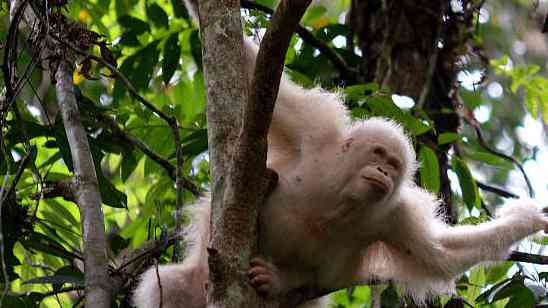
The world's only known albino orangutan climbed trees, foraged for food and began building a nest after being released into a remote Borneo jungle more than a year after conservation officials found her starving and dehydrated in an Indonesian village.
The Borneo Orangutan Survival Foundation says the great ape, named Alba after thousands worldwide responded to an appeal for a name, has tripled in weight since being rescued in April last year. Her name means "white" in Latin and "dawn" in Spanish.
Alba and another rehabilitated orangutan, Kika, were released inside Bukit Baka Bukit Raya National Park last Wednesday after a journey lasting for more than 24 hours from their rehabilitation center by vehicle, boat, and hiking.
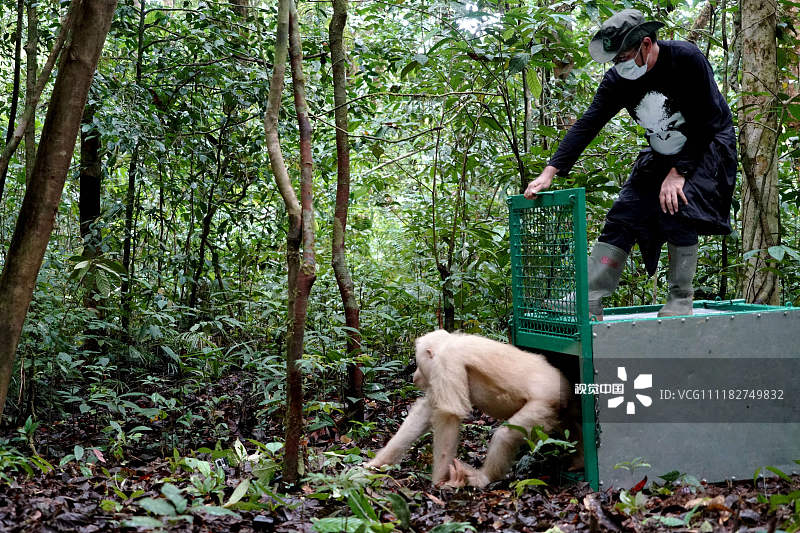
The world's only albino orangutan returns to the wild. /VCG Photo
The world's only albino orangutan returns to the wild. /VCG Photo
The foundation originally planned to create a five-hectare "forest island" for Alba rather than a release into truly natural habitat because of health issues related to her albinism including poor sight and hearing and the possibility of skin cancer.
But the government's Natural Resources Conservation Agency and other agencies decided it was appropriate to release Alba into the wild because of her strong physical condition and intrinsically wild behavior.
She will be electronically tracked and regularly monitored by a medical team.
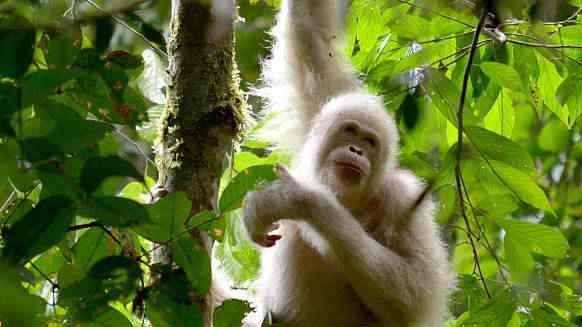
An albino orangutan climbs on a tree. /VCG Photo
An albino orangutan climbs on a tree. /VCG Photo
"Alba has no inferiority complex as we imagined before. She is very confident compared to other orangutans," said veterinarian Agus Fathoni.
"I think the real threat actually comes from humans. What we're worried about is poaching where this very special condition makes her a target," he told Associated Press.
Patrols of Alba's new home by national park and conservation agency staff will aim to deter poachers, though they admit the number of personnel is limited.
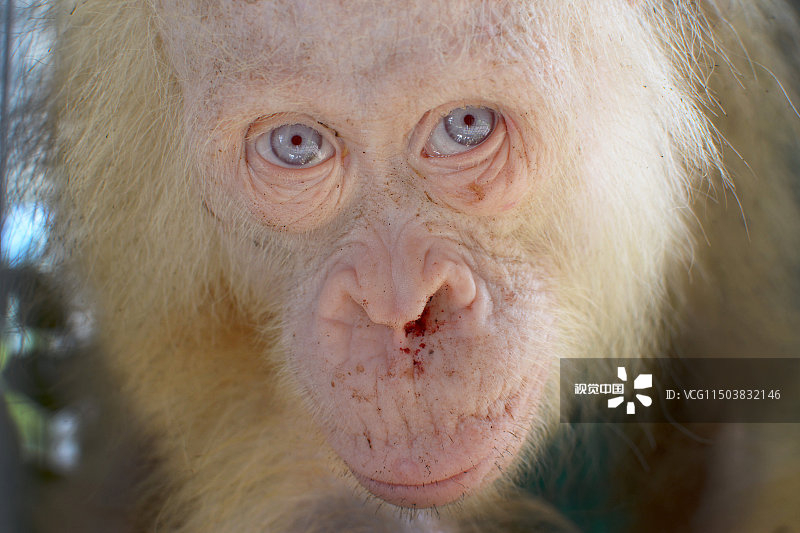
A rescued albino orangutan in a cage at Nyaru Menteng Rehabilitation Center on Borneo Island, Indonesia, April 30, 2017. /VCG Photo
A rescued albino orangutan in a cage at Nyaru Menteng Rehabilitation Center on Borneo Island, Indonesia, April 30, 2017. /VCG Photo
"We don't have enough to cover all the area of the national park but we're confident of covering all the patrol lines that we have set," said Wirasadi Nursubhi, a national park official.
Orangutans, reddish-brown primates known for their gentle temperament and intelligence, are critically endangered and only found in the wild on the Indonesian island of Sumatra and on Borneo, which is divided among Indonesia, Malaysia, and Brunei.
The International Union for Conservation of Nature, which declared Borneo's orangutans critically endangered in 2016, says their numbers have dropped by nearly two-thirds since the early 1970s as plantation agriculture destroyed and fragmented their forest habitat.
The Sumatran orangutan is a separate species and has been critically endangered since 2008.
Alba, approximately five years old, was given final medical tests and anesthetized for the journey to Bukit Baka Bukit Raya.
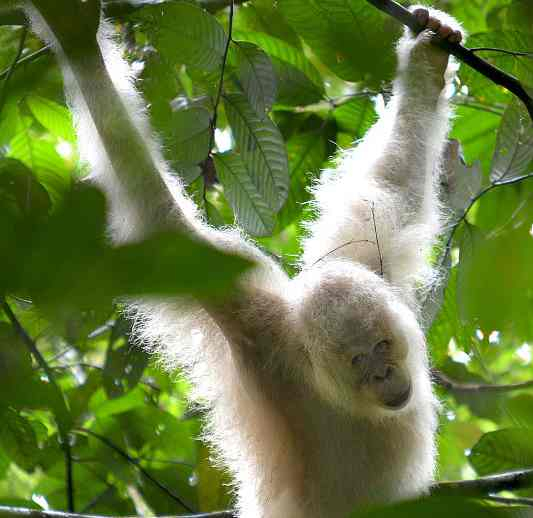
The world's only albino orangutan returns to the jungle. /VCG Photo
The world's only albino orangutan returns to the jungle. /VCG Photo
Workers shouted "Alba's going home" as her cage was lifted onto a truck at the Nyaru Menteng Rehabilitation Center in Central Kalimantan province on Borneo.
"It's true this is a big gamble but we hope that with our collaboration we will win the big bet we have made today," said Jamartin Sihite, the orangutan foundation's chief executive, after releasing Alba from her cage.
Source(s): AP

SITEMAP
Copyright © 2018 CGTN. Beijing ICP prepared NO.16065310-3
Copyright © 2018 CGTN. Beijing ICP prepared NO.16065310-3